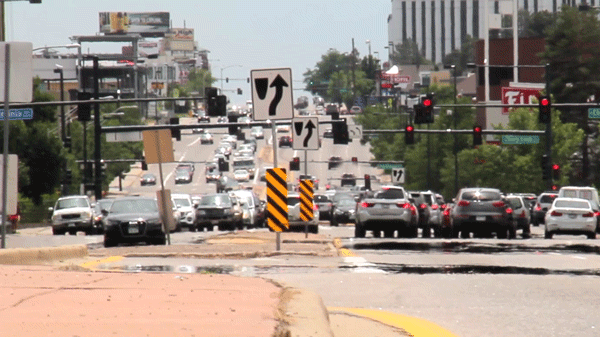Support between the two statewide ballot measures focusing on improving the state’s infrastructure — Proposition 109 and Proposition 110 — is pretty divided, with a new poll showing more supporters are backing Proposition 109 over 110 due to a tax increase.
A poll of 500 likely general election voters by Magellan Strategies found 52 percent of respondents approve of Prop 109, also branded the “Fix Our Damn Roads” initiative, while 35 percent of respondents approve of Prop 110, or “Let’s Go Colorado.” The poll was completed between Oct. 8 and Oct. 10 and contained figures for the governor’s race (more on that here).
Despite the difference in support, the survey results showed 25 percent of respondents are undecided on Prop 109 and 31 percent are undecided on Prop 110. Magellan Strategies writes that “it is premature to say either one will be approved or rejected by voters.”
The two measures are among the 13 statewide ballot initiatives you will be voting on in November.
Here's how these two ballot measures differ in their approach.
Prop 109 would increase money for transportation improvements through bonding $3.5 billion and would only allow the money to be used for road and bridge expansion, construction, maintenance for 66 highway projects in the state. It adds restrictions on how the bonded money can be used. It's backed by the Independence Institute and its president, Jon Caldara. Its the main feature is not doing what "Let's Go Colorado" does, which is raise taxes to pay for repairs; instead, it raises the money by borrowing it and going into debt .
Prop 110 would seek to raise money through a tax increase. It would authorize a state sale and use tax increase by .62 percent, from 2.9 percent to 3.52 percent, over a 20-year period starting Jan. 1, 2019. It translated to the average household paying an estimated $130.63 more in sales and use tax. It's supported by Gov. John Hickenlooper, Mayor Michael Hancock, the Denver Metro Chamber of Commerce and others.
Here's a little more detail about the polling.
Callers were read the ballot language for each measure; the order was switched so that 50 percent of callers heard Prop 109 first and 50 percent heard Prop 110 first.
Prop 109 seemed to do better among Democrats, with 62 percent approving it compared to 46 percent of Republicans. Prop 110 also fared better with Democrats, with 47 percent approving and 23 percent of Republicans approving it.
Some 50 percent of Republican respondents rejected Prop 110, compared to 26 percent of Democrats. By contrast, the Prop 109 rejection rate was a bit smaller, with 27 percent of Republicans rejecting it and 20 percent of Democrats saying the same.
















